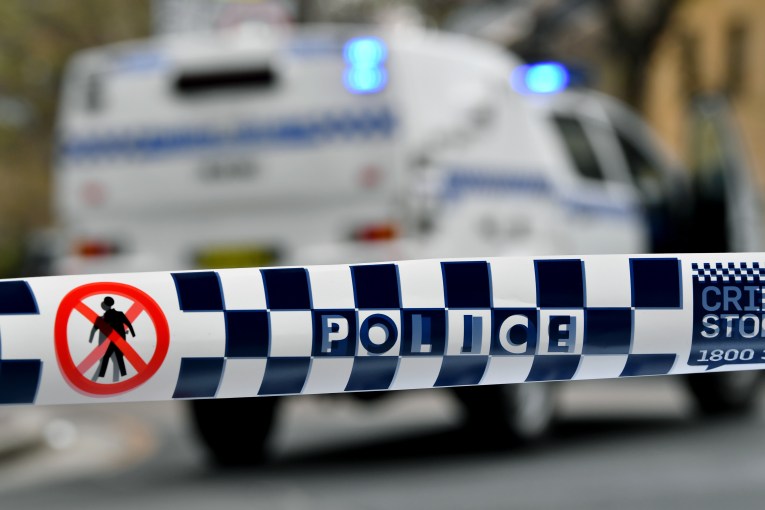WhatsApp has become the latest battleground for coronavirus fake news in Australia, with the popular messaging app the source of multiple political hoaxes going viral nationwide.
It’s nearly impossible to estimate how widespread the problem is in Australia but experts fear the misinformation issues are growing.
And what is even more concerning is the hoaxes are being intimately shared and trusted among senders’ own family and friends.
Phones across Melbourne and Australia lit up last week with countless people receiving messages claiming Victorian Premier Daniel Andrews was in danger of being replaced in an imminent political coup.
“Leaked information,” one version of the message began.
“In Canberra, moves are afoot to parachute in a very senior leader (read General) into Victoria”.
The messages claimed “my mail is good”, and was forwarded between friends. The rumoured military junta did not come to pass.
But after huge numbers of people received the message, the rumour was put to Victorian Treasurer Tim Pallas, who was mentioned by name.

The Victorian text which went around last week. Photo: WhatsApp
“It is total nonsense,” he told 3AW Radio.
It’s not the only scam message forwarded around Australian WhatsApp, with numerous hoaxes shared in the pandemic’s early stages.
Some promised “imminent” lockdown conditions which never eventuated, while even voice messages claiming to have “leaked information” from people “who work in government” were shared.
WhatsApp hoaxes aren’t new, with Australian users being bombarded with misinformation for several years – but several high-profile political coronavirus hoaxes have turned a spotlight on the platform.
While much attention has been paid to COVID conspiracy or anti-vaxxer pages on Facebook and Twitter, many Australians have been bombarded with similarly harmful misinformation on WhatsApp – often from friends or family, making it even harder to debunk and more likely to be believed.
WhatsApp is owned by internet giant, Facebook.
“There’s a lot of research that shows social recommendations are influential, where you pay more attention or you’re more ready to believe because it comes from a trusted source,” Professor Axel Bruns, of the Digital Media Research Centre at Queensland University of Technology, told The New Daily.
Because of WhatsApp’s one-to-one direct messaging, or small group chats, he said hoaxes could spread quickly, and are more likely to be swallowed.
Overseas, in countries through Asia and Africa, WhatsApp was how rumours about child kidnappings and other crimes spread, with fake videos and posts being shared like wildfire – leading to dozens of people being killed after being falsely accused based on doctored footage.
While Australia has not seen such extreme examples, Professor Bruns believed misinformation was festering more in recent times.

The WhatsApp text falsely claimed Daniel Andrews was being replaced. Photo: AAP
“It’s non-public and therefore a lot less possible to observe what’s going on. That means it’s a fertile ground for conspiracy theorists to find each other and communicate, without fear of being found or reported,” he said.
Elise Thomas, a researcher at the Australian Strategic Policy Institute’s International Cyber Policy Centre, said WhatsApp was hard for experts to monitor.
“It’s an unfortunate reality that platforms like Facebook respond to public pressure and negative media coverage. But because it’s a closed platform, you might get away with things on WhatsApp that you wouldn’t on Facebook,” she told The New Daily.
“The platform makes people less sceptical when they get messages. If your friend sends you something, you’re less likely to fact-check it and more likely to accept it as fact. That social element is important because conspiracy theories get a foothold in groups with strong social bonds.”
In a statement to The New Daily, a WhatsApp spokesperson said the platform had taken big steps in addressing misinformation, such as limiting the number of people allowed in each group, and placing restrictions on how messages could be forwarded or copy-pasted.
“During this pandemic crisis, we set a new limit on forwarded messages to help keep WhatsApp a place for personal conversation,” they said.
“When a message is frequently forwarded it gets labeled with double arrows to indicate they did not originate from a close contact. We have set a limit so these messages can only be forwarded to one chat at a time.”

WhatsApp said it is limiting how many messages people can send and forward. Photo: Getty
WhatsApp claimed this had seen a 70 per cent reduction in the number of highly forwarded messages.
The company said it used machine learning to automatically detect and restrict accounts trying to send bulk messages, claiming two million accounts per month were banned over this.
WhatsApp said it had partnered with fact-checking organisations, health bodies and the Australian government to give users accurate, official information – including a government chatbot allowing Australians to ask COVID questions.
“We think the most important step WhatsApp can take is to help connect people directly with public health officials providing crucial updates about coronavirus,” the spokesperson said.
“These health alert lines provide education on myths and rumours circulating about coronavirus to further tackle misinformation.”
WhatsApp said it built 90 chatbots with governments worldwide, and had donated $1 million to fact-checking organisations.









